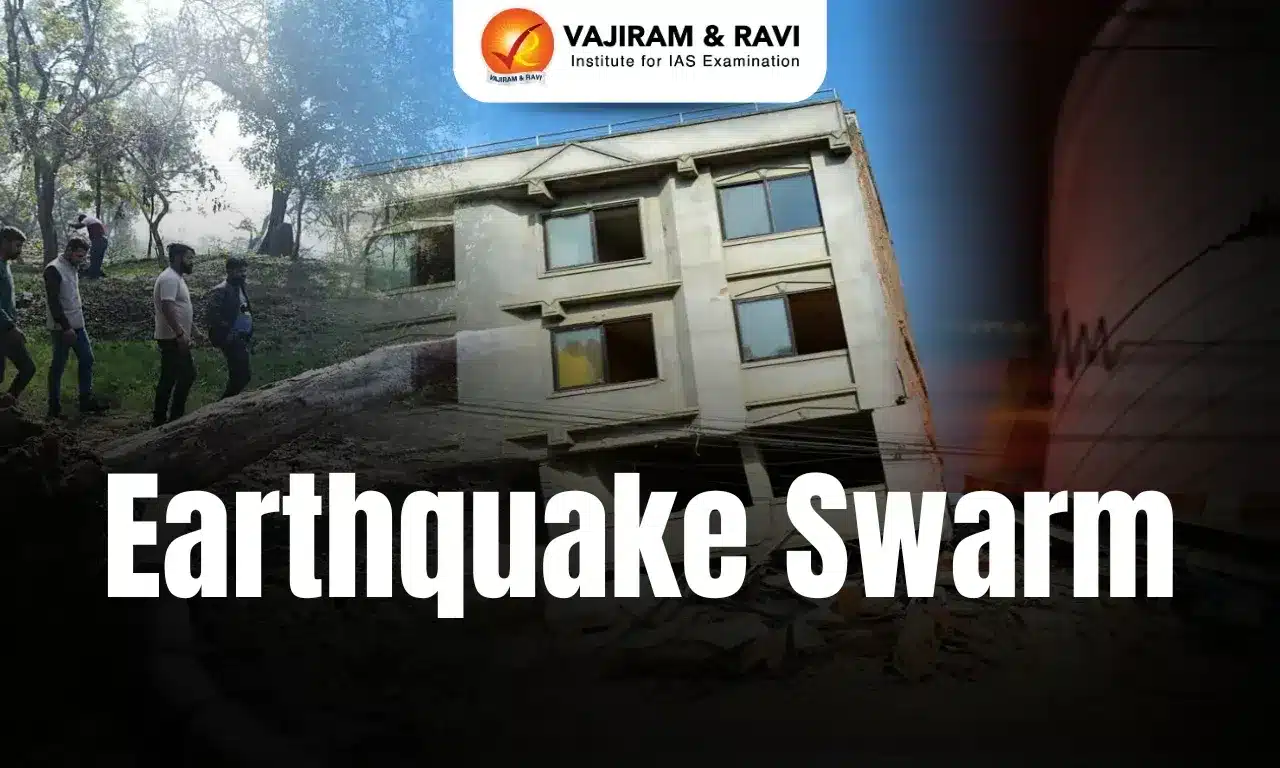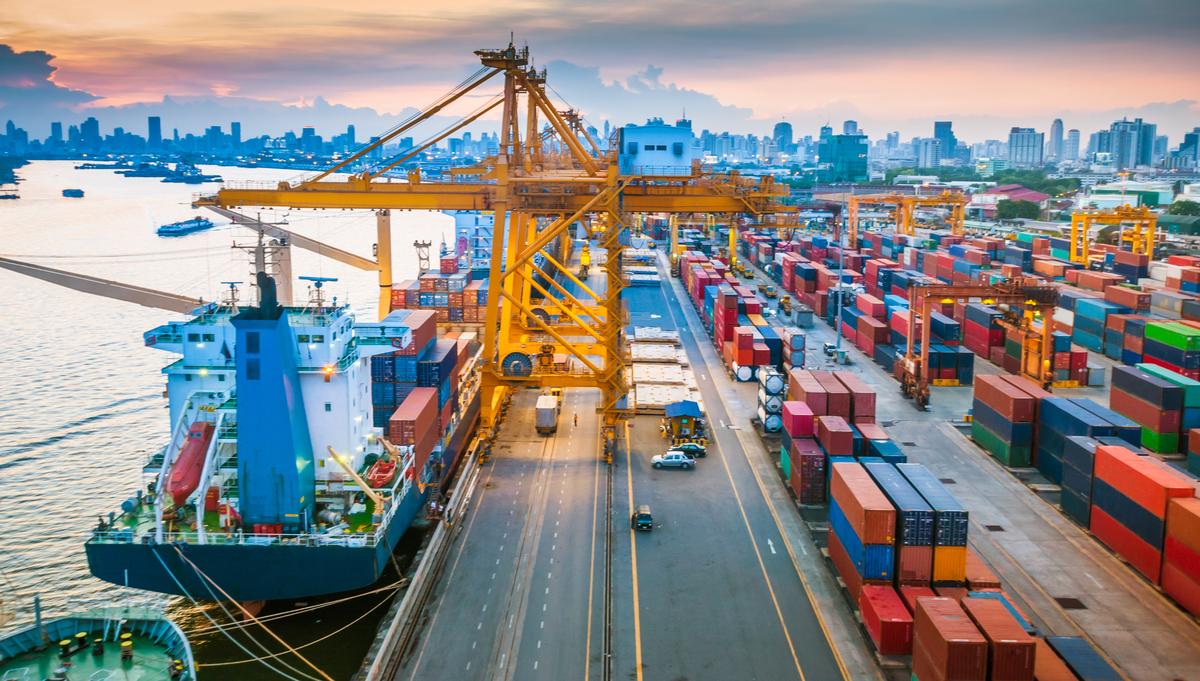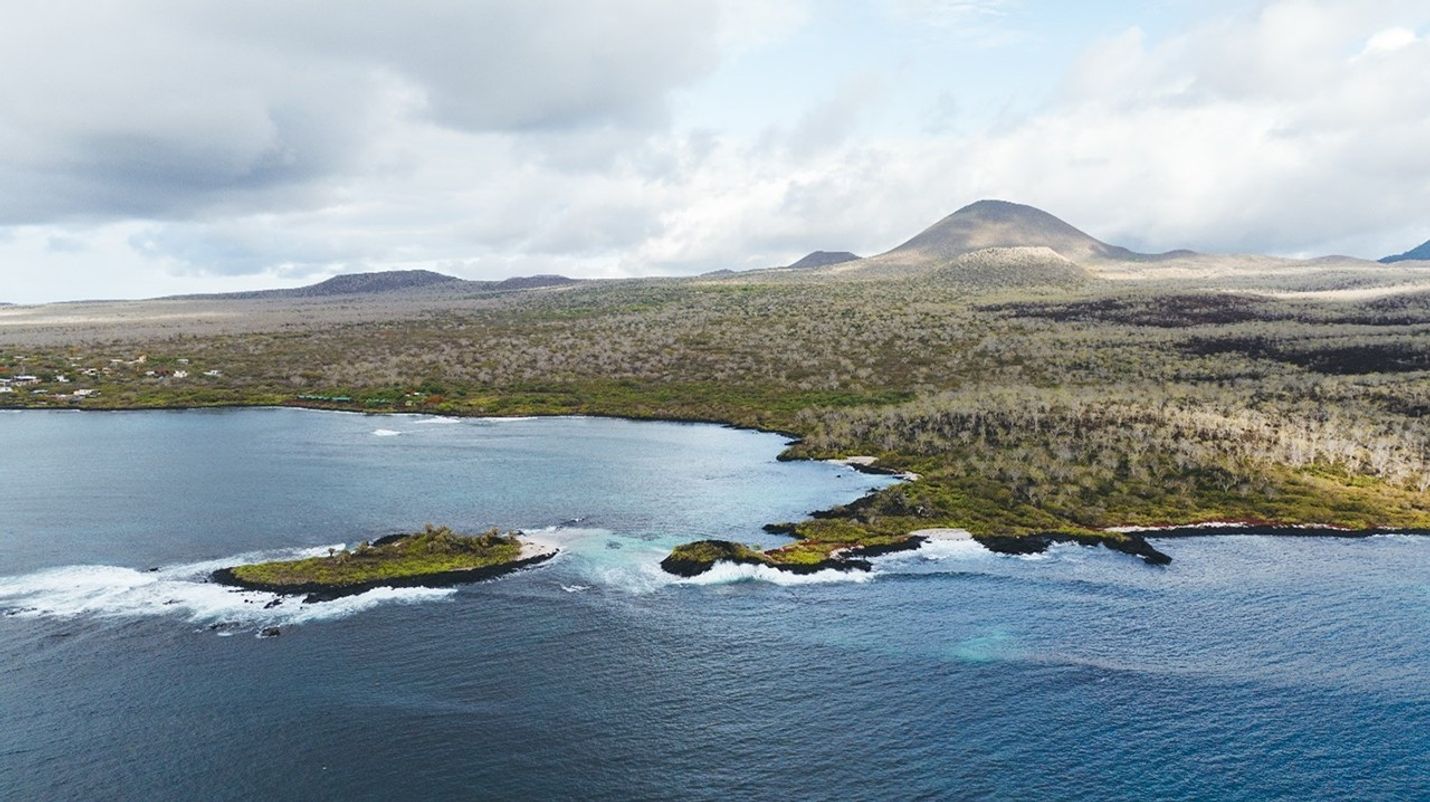Earthquake Swarm Latest News
A state of emergency has been declared on Greece’s Santorini and the nearby islands of Ios, Amorgos, and Anafi after a swarm of undersea earthquakes this month.
About Earthquake Swarm
- It occurs when multiple seismic events of comparable intensity strike a small area in relatively quick succession.
- It involves a series of many (sometimes thousands) low-intensity earthquakes without a discernible main shock that can occur over weeks in active geothermal areas.
- When seismic energy piles up inside the Earth and is released in small amounts from certain points, such a series of earthquakes can occur.
What Causes Swarm Sequences?
- Fluid movement
- In volcanic environments, this can be fluid released from deeper magma or circulating within active geothermal areas (in volcanic areas such as the Taupō Volcanic Zone).
- The earthquakes triggered by fluids occur as fault slip on the cracks and faults through which the water is moving.
- Active volcanism
- Magma movement can also act as the ‘driving mechanism’ for swarms, creating the earthquakes as magma-filled cracks push their way through the Earth’s crust.
- In such a case the earthquakes commonly occur near the crack tip (ahead of the magma where the crack is starting to open), or off to the side of the crack.
- Slow-slip events
- A slow-slip event is essentially an earthquake in slow-motion, and typically involves centimetres to tens of centimetres of movement along a fault, over weeks to years.
- We commonly see slow slip events at the Hikurangi subduction zone, usually at least one or two per year.
Earthquake Swarm FAQs
Q1: What is the difference between earthquake aftershocks and swarms?
Ans: Aftershocks become less frequent with time, although they can continue for days, weeks, months, or even years for a very large mainshock. A swarm, on the other hand, is a sequence of mostly small earthquakes with no identifiable mainshock.
Q2: Where do most earthquakes occur?
Ans: It occurs along the rim of the Pacific Ocean
Q3: What is an earthquake?
Ans: An earthquake is a violent and abrupt shaking of the ground, caused by movement between tectonic plates along a fault line in the earth’s crust.
Source: TH
Last updated on February, 2026
→ UPSC Notification 2026 is now out on the official website at upsconline.nic.in.
→ UPSC IFoS Notification 2026 is now out on the official website at upsconline.nic.in.
→ UPSC Calendar 2026 has been released.
→ UPSC Final Result 2025 is expected to be released in the second week of April 2026.
→ Check out the latest UPSC Syllabus 2026 here.
→ Join Vajiram & Ravi’s Interview Guidance Programme for expert help to crack your final UPSC stage.
→ UPSC Mains Result 2025 is now out.
→ UPSC Prelims 2026 will be conducted on 24th May, 2026 & UPSC Mains 2026 will be conducted on 21st August 2026.
→ The UPSC Selection Process is of 3 stages-Prelims, Mains and Interview.
→ Prepare effectively with Vajiram & Ravi’s UPSC Prelims Test Series 2026 featuring full-length mock tests, detailed solutions, and performance analysis.
→ Enroll in Vajiram & Ravi’s UPSC Mains Test Series 2026 for structured answer writing practice, expert evaluation, and exam-oriented feedback.
→ Join Vajiram & Ravi’s Best UPSC Mentorship Program for personalized guidance, strategy planning, and one-to-one support from experienced mentors.
→ Check UPSC Marksheet 2024 Here.
→ UPSC Toppers List 2024 is released now. Shakti Dubey is UPSC AIR 1 2024 Topper.
→ Also check Best UPSC Coaching in India




















